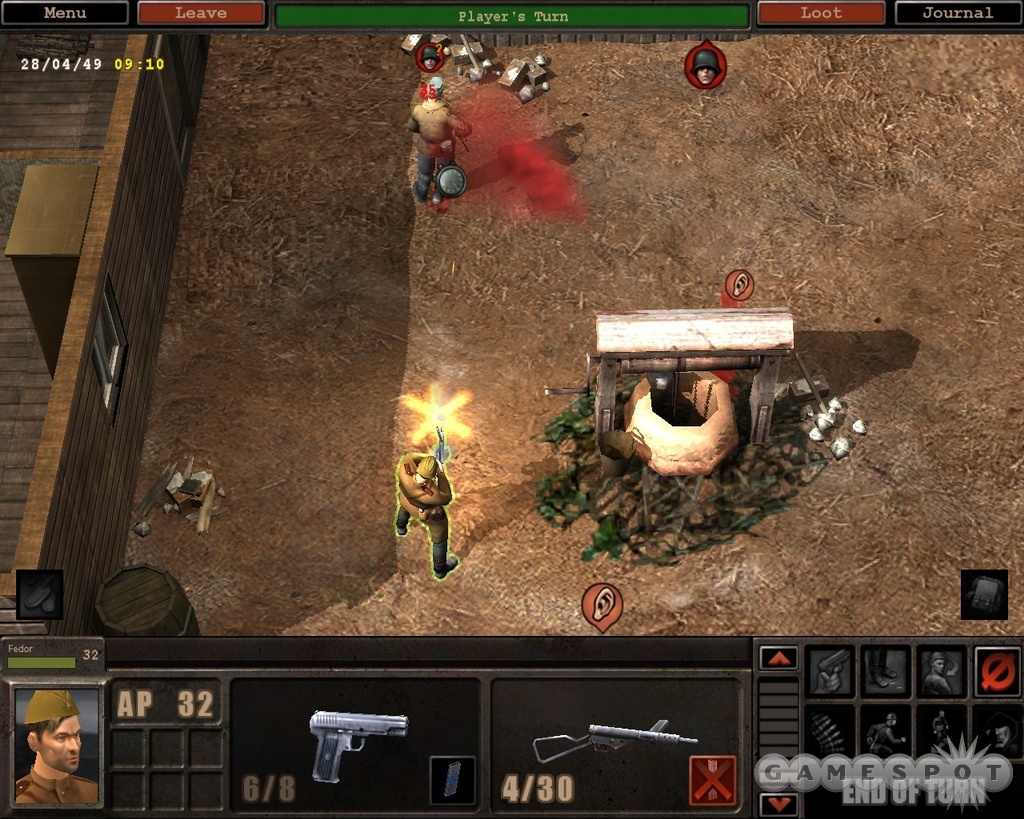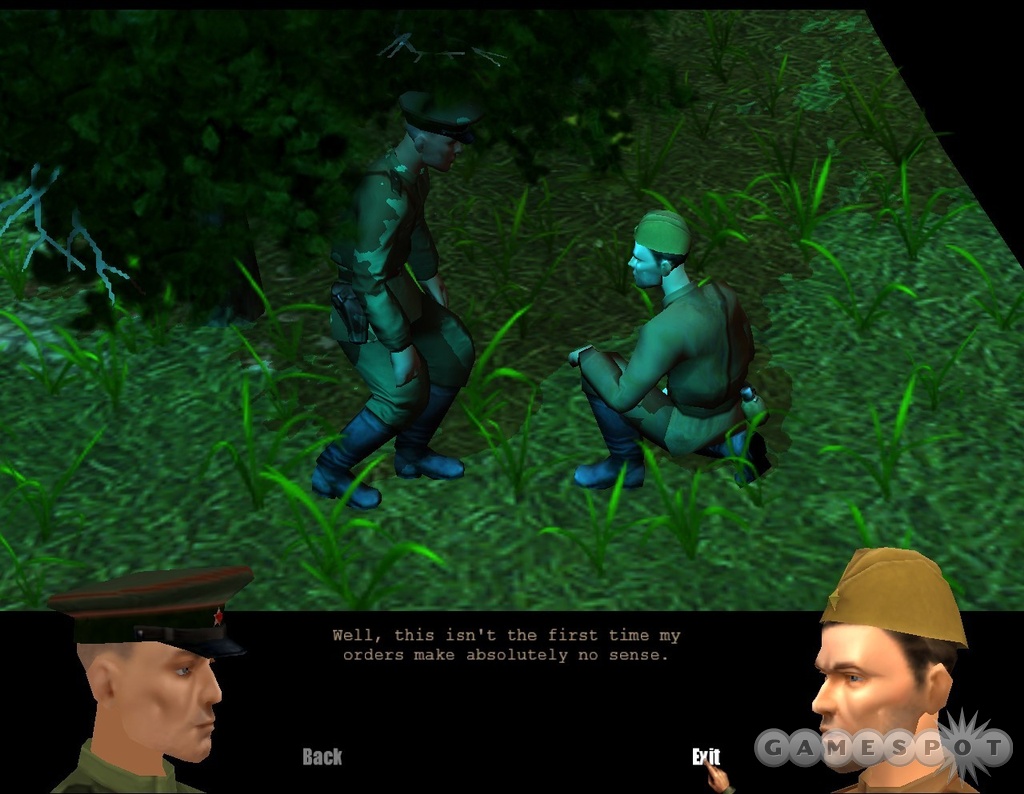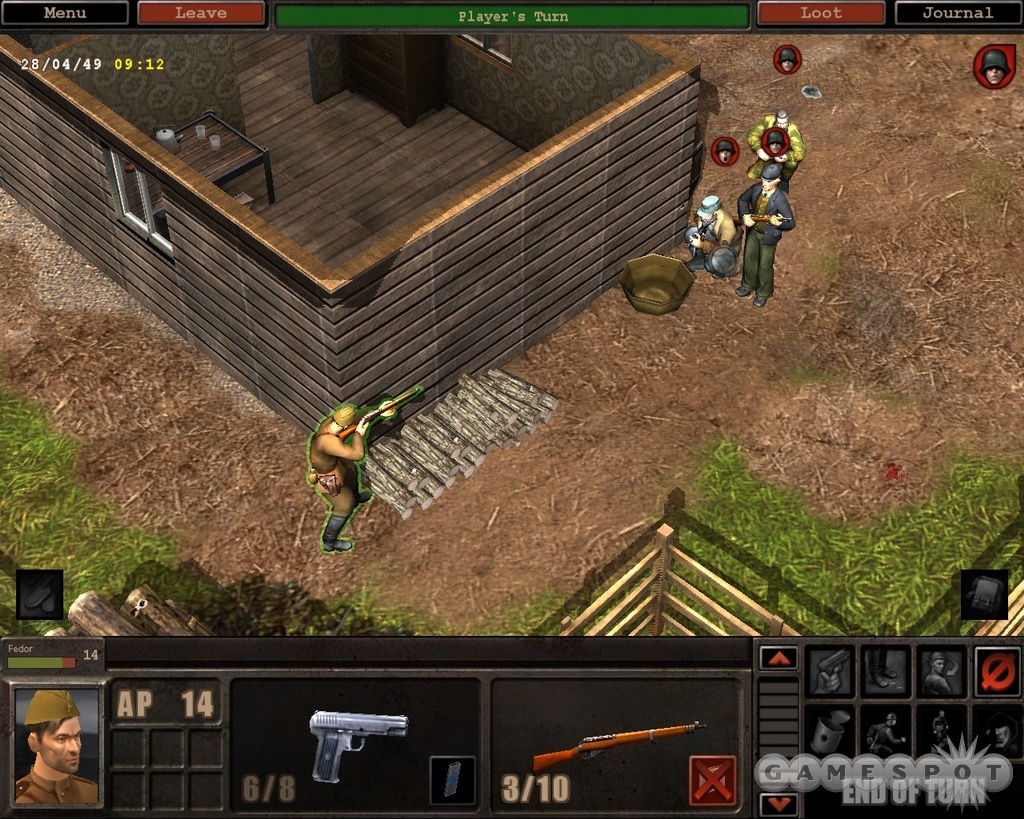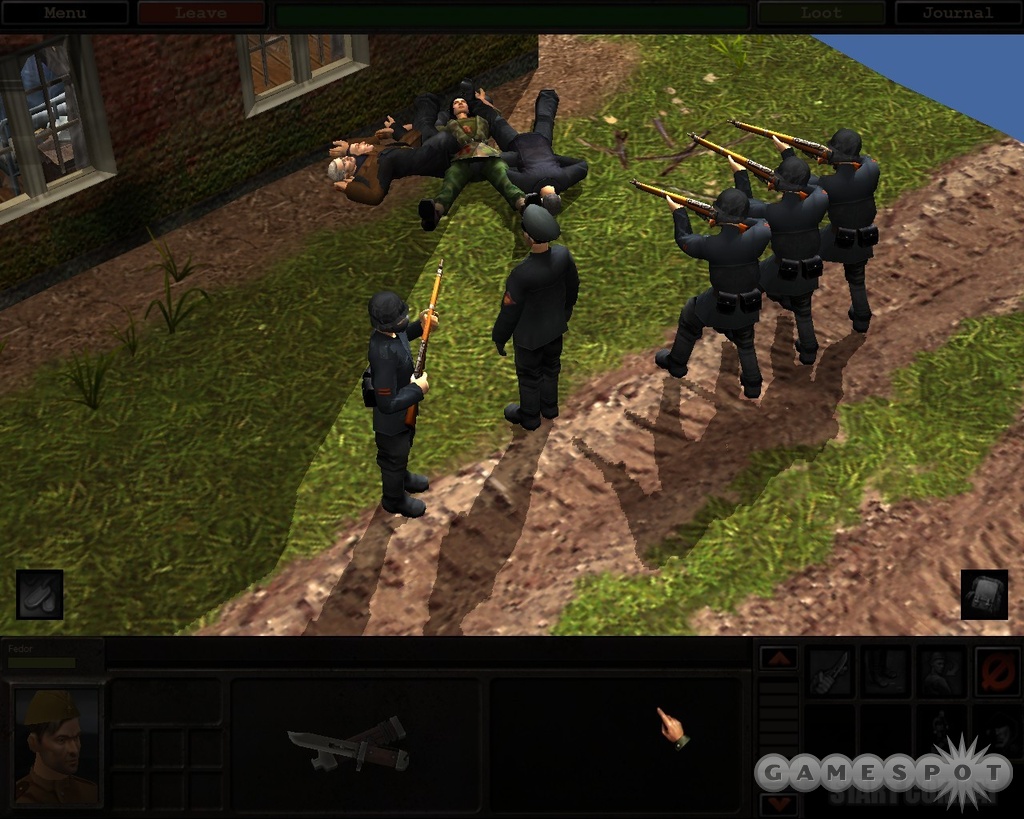With an acclaimed codeveloper like Nival Interactive and an intriguing premise set during the dawn of the Cold War in the 1940s, you wouldn't think that Novik & Co.'s Hammer & Sickle could lose. Nival certainly knows this territory, with the excellent squad-based WWII sim Silent Storm on its list of recent credits. And who could resist such an interesting, unexplored setting? It's easy to see why so many squad-combat fans were eagerly awaiting this game's arrival in stores. Unfortunately, it has proven to be a bit of a miscalculation. Somewhere between conception and execution Hammer & Sickle went offtrack. Way offtrack. All of the great promise inspired by both Nival's involvement and this innovative setting has been wasted in a game that is inept on every level. Story, interface, difficulty, graphics, voice acting, music, and just about everything else, seem to have been slapped together at the last minute and rushed out with no attention to quality control.

Even the promising setting has been ruined. You play a Soviet spy snooping around West Germany just as the Cold War really starts to get going. The year is 1949, so say hello to Checkpoint Charlie, loads of international espionage, and escalating tension between the US and the USSR. But the plot veers away from historical reality after setting the stage, with the introduction of a mysterious third party of suspiciously Nazi-like thugs bent on drawing both nations into a nuclear holocaust. So the tale turns from gritty Cold War thriller into a James Bond-style saga, which is a little clichéd and disappointing.
Even more distressing is the awful way that this superspy story is told. Nothing is set up properly, so you're always left wondering what's going on and where you're supposed to go next. Dialogue is spit out in such a random fashion that it seems like somebody cut every third line for brevity just before shipping the game. It begins with the very first mission, where you're told to contact Vaclav, deliver a proposal, and kill the guy if he doesn't like what he hears…without the benefit of a preamble explaining who you are, where you are, who Vaclav is, what this proposal is all about, and so on. Mission assignments rarely come with proper instructions, so the game is often incoherent. Also, the story branches at points that are almost totally imperceptible to the player. Kill the wrong people at the wrong time (mainly Allied soldiers and civilians), and you can unknowingly set up an unstoppable slide to the start of World War III that will prematurely end your game.

The actual gameplay does its fair share to wreck Hammer & Sickle as well. Although the game is being billed as an RPG, this is really just a revamped Silent Storm (Novik & Co. apparently got started on this project by making a mod for that game) with more of a story and shops where you can buy and sell items. Just as in the earlier, much better game, you also (eventually) control a group of soldiers with varied abilities, pick skill advancements as they go up in level, and so forth. The only major difference is that you custom design a soldier at the beginning or you choose between soldier, sniper, grenadier, engineer, surgeon, and scout classes. Anyone looking for actual role-playing would be advised to look elsewhere, because this is really a fairly typical squad-based tactical shooter.
Action plays out in the same turn-based manner as Silent Storm, too, but with a couple of key changes that kill what that game had going for it. Combat is noticeably slower here. Enemy and Allied turns take forever to be resolved whenever there are more than three or four of each shooting it out. Maps are very small. Many assignments play out in tiny areas that can be crossed in seconds. So instead of tackling sprawling bases crammed with patrolling soldiers, you typically have to get past only a guard post or two or gun down a crowd of goons before moving on to the next assignment. This scales down the tactical challenge and turns most missions into races to the finish line or tedious gun battles.
But this doesn't mean that Hammer & Sickle is easy. This game is actually spectacularly, insanely hard even on the easy difficulty setting. Guards can annihilate your boys with single bursts of automatic weapon fire and effortlessly hit from long range. Even single rifle rounds can kill or result in immediate, temporary blindness that ends your Cold War adventure just as effectively as a stopped pulse. And there are packs of enemy soldiers to kill in almost every level. The second (second!) mission forces you to kill an entire firing squad single-handedly and then deal with 10 more attacking enemy soldiers. There is a ridiculous amount of trial and error, as you often need to be perfect to escape with your skin. And many missions are flat-out impossible to beat unless you go through them once to see where enemy reinforcements show up on the map.

Sneaking isn't the answer, either, as it just isn't an option most of the time. Also, if you get spotted while attempting to crawl past a guard, you're an instant corpse. Enemies have also been granted the hearing ability of dogs and the eyesight of owls, as they can target a hiding, crawling soldier amid a copse of trees in the dark of night, especially in the early stages of the game before you start buffing skills.
The clunky interface doesn't help matters, as you need to press three or four buttons just to go from a crouch to a good firing position with a weapon in hand. It makes more sense to skip the sneaking whenever possible and hit patrols head on (at least after you gain a few allies and acquire an automatic weapon or three), because at least then you have a fighting chance to win a battle once the guns start going off.
Presentation values could use a lot of work, too. While the game has been built atop the good-looking Silent Storm engine, load times are long and animations are stuttery. Units come to abrupt halts and generally move in a stiff and artificial fashion. Most of the scenery is well done, with extra details like fires roaring in ovens and assortments of junk scattered on tables, but the edges of each map end in a bright blue wall that is very jarring.

Audio is simply bizarre. Dialogue is poorly recited, with obtrusive, diverse accents reminiscent of Monty Python skits popping up all over the place. The lead has a habit of repeating catchphrases like "Don't be afraid of the barking dog, be afraid of the silent dog!" over and over again like they were world-class bon mots. And the soundtrack seems to have been dropped in from another game entirely, or maybe a bunch of different games. The menus feature 1960s-era lounge music more appropriate to a Leisure Suit Larry adventure than a Cold War spyfest, and mission tunes veer abruptly from orchestral numbers to shrill, Euro-style heavy metal during combat. So one moment you're grooving to Perry Como, the next you're shredding with Yngwie Malmsteen.
If Hammer & Sickle were the first effort of a fledgling developer working alone then you could be optimistic about the future of the company. After all, the turn-based engine is reasonably well done, if sluggish, and Novik & Co. had some great ideas here. But since this game was codeveloped by Nival, you instead have to wonder how a veteran developer like this, with a dozen games to its credit (including some very good ones), could ever have let a mess like this out the door.